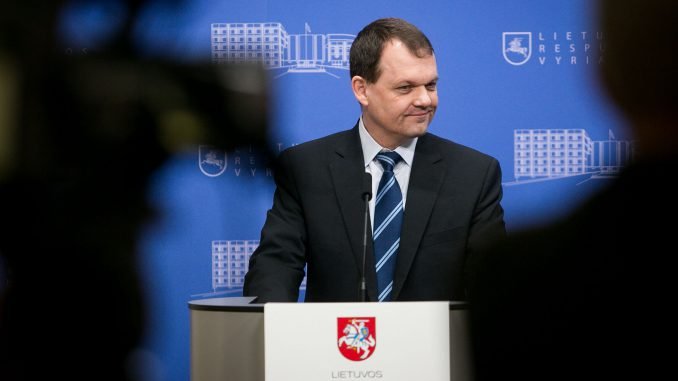
“2.8 percent is still a very good number. We saw a little slowdown in the first quarter of this year, but we think this is temporary. Nevertheless, it will impact overall economic growth,” Christoph Klingen, chief of the IMF Staff Mission to Lithuania, said at a news conference in Vilnius on Wednesday.
The Fund took into account the effects of Russia and CIS countries on Lithuania’s economy when drafting the new forecasts, he said.
“We factored situation in Russia and CIS in terms of what it means for trade and confidence in Lithuania. But the role of trade with Russia is sometimes exaggerated because a lot of trade is re-exports and has a limited impact for Lithuania,” Klingen said.
The IMF Staff Mission, which wrapped up its visit to Lithuania on Wednesday, said in a report that domestic demand would remain the main engine of the country’s economic growth.
“Improvements in outlook brought by entry to the euro area should offset the sluggishness in CIS trade partner countries. Exporters have already demonstrated their excellent abilities to adjust by refocusing exports on new markets,” the report said.
Approach to investment might become more cautious amid continuing geopolitical turmoil, but the effect on growth should be offset by a decrease in energy prices, the Fund’s experts said.
Next year, the country’s economic growth should accelerate to 3.2 percent.
Public finance challenges
Lithuania’s public finances may face challenges since the country will have to offset the consequences related with the increasing of defence spending and by reducing tax on labour, the IMF has said.
“Irrespective of the looming expenditures in pension and healthcare sectors as a result of population ageing, the consequences of commitments to increase defence spending and to reduce the tax burden on labour so as to promote job creation will have to be offset with other measures,” the IMF Staff Mission said in conclusions.
Pressure to increase spending, which the country had been reducing since 2009, might intensify, the Fund’s analysts warned.

Be the first to comment